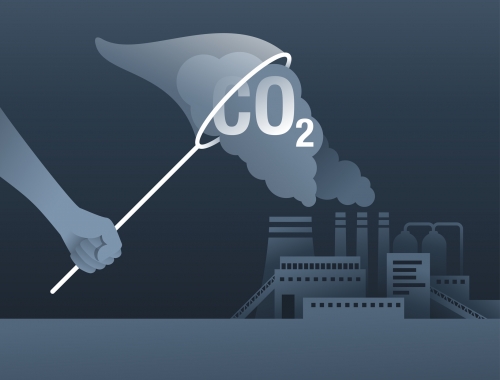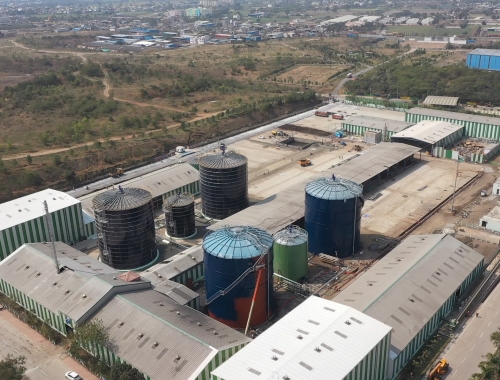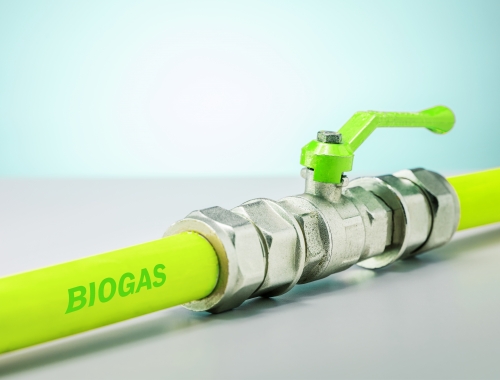Mumbai-based PRESPL plans multiple biogas plants in India
SUMMARY
The company will standardise the plants to either 10 tonnes/day gas output or 15 tonnes/day output.
By Shardul SharmaMumbai-headquartered pan India-focused biomass supply chain management firm Punjab Renewable Energy Systems Private (PRESPL) is expected to announce its plans to develop multiple biogas plants in India in the next three to six months, the company's founder Lieutenant Colonel Monish Ahuja told GasPathways.
The company will standardise the plants to either 10 tonnes/day gas output or 15 tonnes/day output. PRESPL will look at different types of feedstocks such as rice paddy straw, corn, cotton stock, sugarcane crush, industrial residue, cow dung, and others to leverage its capability and know-how of biomass feedstock aggregation and management.
The company will look at a variety of options for the offtake of the biogas, including discussions with private players, state-owned entities, industrial clients and setting up its own bio-CNG / biogas dispensing stations.
"We are having discussions with private players as well as state-owned entities. We are even mulling setting up our own biogas dispensing stations. So, there are a number of ways we monetise the productions," Ahuja said.
PRESPL was established in 2011 and collects and processes biomass to produce renewable steam energy, which is sold to industrial units. The company has customers in fast-moving consumer goods, and pharmaceutical industries. The customers either own the biomass plants or buy only the steam as energy. In either case, PRESPL operates the plant. The company processes 500-600 tonnes/day of biomass across multiple locations.
The company also produces briquettes and pellets made from agricultural residues. This is an eco-friendly process to convert agriculture, forestry, and industrial waste into solid blocks of biofuel. These briquettes are now also replacing firewood at cremations, which is a societal change brought about by PRESPL.
Further capital raise
PRESPL is looking to further raise capital to help fund its expansion plans. The company is currently having a mix of private equity (PE) and strategic investors like G2G established Neev Fund, Japan's Mitsui & Co. and Anglo-Dutch energy company Shell, promoter shares are held by Ahuja, and the rest by other investors. responsAbility (rA), a Swiss based Impact PE fund which invested in 2013 has secured a full exit in 2023 with strategic investor Mitsui & Co. increasing its stake in the company.
PRESPL also has credit guaranty support from US Development Finance Corporation (US DFC) and World Bank – SIDBI energy efficiency credit line. Debt and working capital support is provided by HSBC and HDFC with many other NBFC also supporting PRESPL in this business growth.
"We are working on a new round of fund raise. In our capital raise, we would look at a partner that would help us recalibrate our cap table with a focus of next 6-7 years horizon and find a suitable partner-enabler for every growing business of PRESPL in biomass-bioenergy sector," Ahuja said.
Robust growth in biogas demand ahead
The Indian government believes that there is ample potential to set up biogas plants in India considering the livestock population of 535.78mn, which includes about 302mn total population of bovines comprising cattle, buffalo, Drung ox, and yak.
Biogas contains about 55-65% methane, 35-44% carbon dioxide, and traces of other gases. Biogas, in its raw form, that is without any purification, can be used as clean cooking fuel replacing liquefied petroleum gas, lighting, motive power, and generation of electricity. It can be used in diesel engines to substitute diesel up to 80% and up to 100% replacement of diesel by using 100% biogas engines. Further, biogas can be purified and upgraded up to 98% purity of methane content to make it suitable to be used as a green and clean fuel for transportation or filling in cylinders at high pressure of 250 bar.
The Indian Ministry of New and Renewable Energy (MNRE) last year notified the National Bioenergy Programme. MNRE has continued the programme for the period from fiscal year 2021-22 to 2025-26. The programme has been recommended for implementation in two phases.
The first phase of the programme has been approved with a budget outlay of 8.58bn rupees, which included 1bn rupees for the biogas programme to support setting up of small (that is, 1 m3/day to 25 m3/day) and medium-size biogas plants (that is, above 25 m3/day to 2500 m3/day).
Ahuja believes that the biogas sector in India has a lot of potential if the supply chain is streamlined. He says that biogas/bio CNG can be mixed with conventional city gas and can be used in areas such as the transportation sector, industrial use and for cooking purposes in households, thereby increasing mix of sustainable fuel in the growing gas economy demand.
"I see a lot of potential in this space in coming years. Bio CNG can be mixed with conventional CNG for transportation and piped natural gas that is used for cooking in households. Since India is a major importer of gas, a robust biogas sector can not only ensure stable supplies of energy but can also save a lot of foreign exchange. The development of biogas plants in India has the potential to create jobs, reduce pollution, and improve energy security," Ahuja said.








